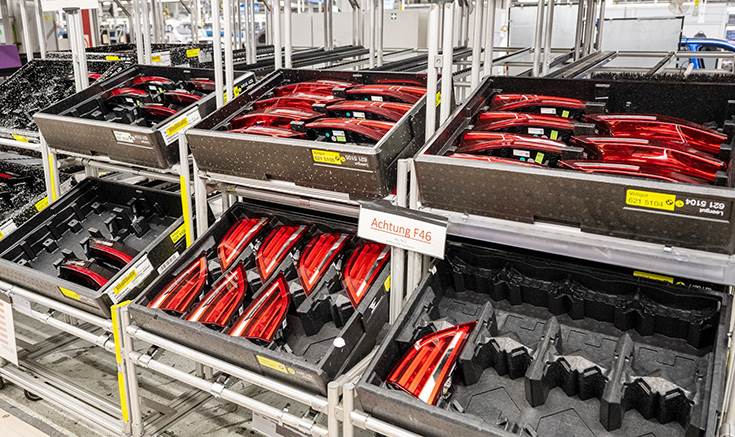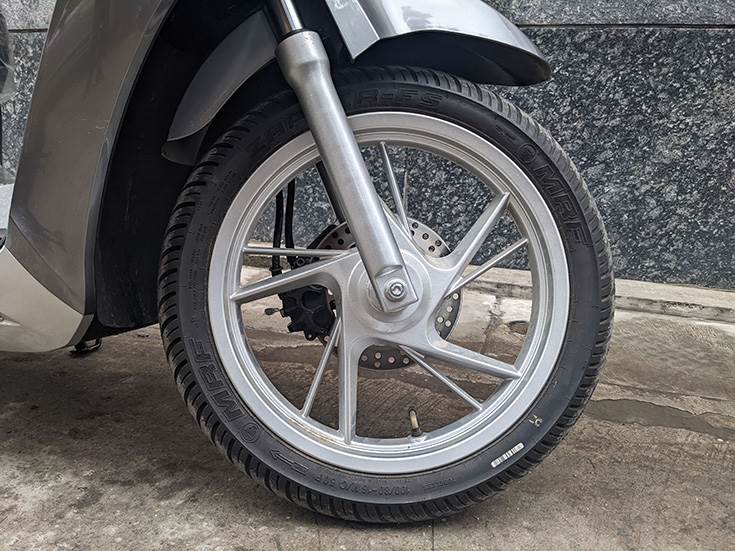India’s Sona Comstar has partnered with Drive TLV, an Israel-based innovation hub focused on smart mobility solutions. The partnership with DRIVE will give Sona Comstar access to Israel’s hi-tech mobility start-up ecosystem. With this move, Sona Comstar joins a select group of Drive TLV’s automotive partners, which includes Volvo Cars, Volvo Group, Honda Xcelerator and… Continue reading Sona Comstar partners Israel’s Drive to accelerate high-tech innovation
Tag: Mobility
BMW walks the sustainability talk in packaging logistics
The BMW Group is pushing the envelope when it comes to sustainability. And the effort now includes several projects in its packaging logistics to further save resources. With these projects, the Group aims to work closely with suppliers to reduce carbon emissions and realise the principles of the circular economy as best it can. As… Continue reading BMW walks the sustainability talk in packaging logistics
LG Innotek’s Quality Control Gets Recognition from a Global Premium Vehicle Maker
LG Innotek has maintained Jaguar Land Rover Quality Certification for two years in a row. The company boasts quality competitiveness recognized by global car manufacturers. The company will make efforts to innovate customer experience through its next-generation automotive components. SEOUL, South Korea, Aug. 17, 2022 /PRNewswire/ — On Aug. 17, LG Innotek (CEO Cheol-Dong Jeong)… Continue reading LG Innotek’s Quality Control Gets Recognition from a Global Premium Vehicle Maker
Ola to expand Tamil Nadu future factory into EV hub
The expansions will require “multi billion dollar investments” though Aggarwal did not reveal the exact figures. CHENNAI: Ola Electric has announced mega plans to scale up its business with a foray into electric cars, introducing new e-two wheeler models and scaling up lithium ion cell manufacturing. The company has announced its target to introduce the… Continue reading Ola to expand Tamil Nadu future factory into EV hub
How EV Super App could help improve EV usage in India by a great deal
Earlier this month, the government announced that India would soon get a master app that would serve as a one-stop-shop solution for all electric vehicle-related details. The EV Super App is slated to be able to reduce range anxiety and hence help promote usage of EVs in the country. State-run Convergence Energy Services Limited (CESL)… Continue reading How EV Super App could help improve EV usage in India by a great deal
Five and Beyond: NIO Capital Marks Fifth Anniversary
SHANGHAI, Aug. 17, 2022 /PRNewswire/ — NIO Capital celebrated its “Five and Beyond” fifth anniversary in Suzhou on August 5. Continue Reading NIO Capital team At the gathering, William Li, Ian Zhu and Nathan Yu, the firm’s managing partners, shared their experience, insights, and NIO Capital’s achievements over the past five years. Carl Guan, Li Yao,… Continue reading Five and Beyond: NIO Capital Marks Fifth Anniversary
Okinawa Okhi-90 EV: High on range but needs more finesse
In today’s market reality of wallet-hurting petrol prices, going electric on two wheels is one salve for those who seek affordable mobility. Not surprisingly, since the past 18-odd months, electric two-wheeler sales in India are on the upswing – cumulative sales were 240,662 units in the first half of CY2022 itself, contributing 3.6 percent to… Continue reading Okinawa Okhi-90 EV: High on range but needs more finesse
Hero Electric partners AU Small Finance Bank for EV customer finance
Hero Electric, the largest electric two-wheeler OEM in India, has signed a partnership with AU Small Finance Bank, which has 953 touch-points across India, to provide easy finance solutions to customers. Hero Electric, which has its manufacturing plant in Ludhiana, currently has a 14-strong portfolio of e-scooters. The demand for electric two-wheelers is on the rise… Continue reading Hero Electric partners AU Small Finance Bank for EV customer finance
The Hive Has Arrived: All-new 2023 Dodge Hornet Unlocks Gateway to Dodge Muscle, Offers Quickest, Fastest, Most Powerful Compact Utility Vehicle Under $30,000
AUBURN HILLS, Mich., Aug. 16, 2022 /PRNewswire/ — Continue Reading Dodge is introducing the all-new 2023 Dodge Hornet, delivering the quickest, fastest, most powerful compact utility vehicle (CUV) under $30,000. The 2023 Dodge Hornet disrupts the fast-growing CUV segment, building buzz with a distinctive Dodge combination of muscular styling wrapped around best-in-class standard performance from… Continue reading The Hive Has Arrived: All-new 2023 Dodge Hornet Unlocks Gateway to Dodge Muscle, Offers Quickest, Fastest, Most Powerful Compact Utility Vehicle Under $30,000
SAIC Mobility Robotaxi valued at $1B after $148M Series B
SAIC Mobility Robotaxi, an arm of state-owned Chinese automaker SAIC that aims to launch a commercial robotaxi service, raised $148 million (RMB 1 billion). The funds will be used to scale its robotaxi service in China, which it will operate in partnership with autonomous vehicle company Momenta. SAIC Group led the Series B round that… Continue reading SAIC Mobility Robotaxi valued at $1B after $148M Series B

